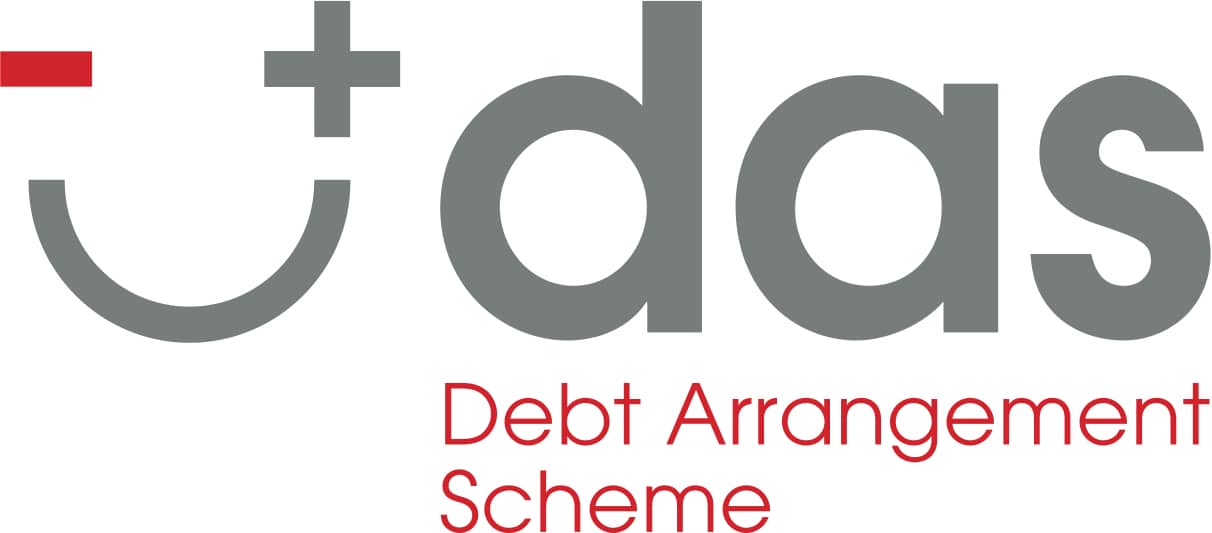Residents of Scotland who are struggling with debt but have the ability to repay it should consider a Debt Arrangement Scheme (DAS).
Put into force in 2004, amended in 2007, and reorganized in 2011, this debt management tool is administered by the Scottish government and enables residents to establish a Debt Payment Program (DPP) to repay their debts.
With a DPP in place, an individual has an extended time to repay debts and is protected from negative actions of creditors included in the DPP.
Do you live in Scotland? You may qualify for a debt arrangement scheme or a trust deed. These solutions are only available to Scottish residents and can help you consolidate all your debts into one single affordable repayment. Contact us today to see if you qualify and one of our debt experts will guide you through the debt arrangement scheme process.
⏱ Get A Free No Obligation Debt Assessment:
Please fill out this form and we will get in touch with you shortly.
Basic Details About a DPP
To qualify for a DAS, a person must be a resident of Scotland initially and needs to have two or more unsecured debts that he or she could not repay under the original agreements with creditors. The 2011 regulations also permit individuals with a single debt or those with an unprotected Trust Deed to apply.
Couples who are jointly and severally liable for at least one debt are also eligible if they are civil partners, husband and wife or living together as such, or of the same sex and living together in a marital-type relationship.
A DPP must be established by an accredited Money Adviser. It lists the amount that an individual can afford to contribute toward unsecured debts on a monthly basis. This monthly payment is based on income remaining after living expenses like rent or mortgage, regular monthly bills, and food expenses are deducted.
Based on this, the length of time it will take to repay each debt in full is determined.
The Money Adviser negotiates repayment amounts directly with creditors. There are no restrictions on how long a DPP can last as long as the timeframe is deemed reasonable by all parties. Each creditor receives the final DPP proposal and has 21 days to accept or reject the plan.
A creditor that does not respond within this timeframe is considered to have consented. If all creditors consent to the DPP or no creditor submits a rejection within a 21-day decision period, the DPP is considered approved. If a creditor refuses to accept the DSS terms, the DAS Administrator uses Fair and Reasonable test criteria to determine whether the DPP proposal should be approved.
The DPP is considered a legally binding plan for debt management
Conditions include not applying or obtaining credit unless approval is granted by the DAS Administrator. If the debtor fails to comply with all DPP terms and conditions, the plan may be revoked, allowing creditors to pursue legal action.
Revocation of a DPP enables a creditor to add interest, penalties, fees, and other charges that would have been due if the DPP was never created.
Some organizations charge to provide advice regarding a DAS but we do not. A maximum application fee of two percent and payment distribution fee of eight percent is charged to creditors. Therefore, a creditor included in a DPP can receive a maximum of 90 percent of the money it is owed.
Each monthly payment made by a debtor is distributed to creditors according to the agreed terms within the DPP.
Approval of a DPP

If a DPP is approved, included creditors are required to comply with legislation regarding a DAS. Interest, fees, and other charges on included debts are frozen. If the debtor satisfactorily completes the DPP, these are waived. Creditors must cease planned enforcement actions upon being notified of DPP approval and they are not permitted to correspond with the debtor to obtain payment for debts included in the DPP while the plan is in place.
The DAS Administrator or Money Adviser collaborates with an approved Payments Distributor to begin the DPP. Once the DPP is approved, the debtor makes a single payment regularly (usually on a monthly basis) to the named Payments Distributor who then issues payments to creditors.
A variety of payment methods are accepted, including direct debit, payment card, and payment mandate to an employer, making things as convenient as possible for the debtor.
Rejection of a DPP
If a DPP is rejected by the DAS Administrator, the DAS Register is updated with this information and the individual must make contractual payments to creditors. If the debt is not repaid as initially agreed, creditors may take action to recover the debt. Creditors have the right to apply interest, fees, and other charges to debts that were included under the DPP.
The debtor is free to pursue other debt management techniques such as a Protected Trust Deed or even bankruptcy. The individual should contact the Money Adviser as soon as the DPP is rejected in order to discuss these and other options. It may even be possible to submit a revised DPP proposal.
A debtor may also file an appeal with a sheriff on a point of law against the rejection decision by the DAS Administrator.
Special Provisions of a DPP
Once an individual decides to apply for a DPP, this person can write to the DAS Administrator expressing an intimation of intention to seek protection from creditors for six weeks while the DPP proposal is prepared and submitted. An individual covered by a DPP can apply for a six-month payment holiday when certain circumstances reduce disposable income by at least 50 percent.
If the payment holiday is granted, the DPP will be extended for six months. Changing financial circumstances may also entitle the borrower to vary previously agreed payments to creditors, subject to approval.
All debts included in the DPP are viewed as satisfied once all agreed payments are made. All creditors included in the DPP may also agree to complete the plan prior to its scheduled end date. Following the completion of a DPP, the debtor may not be held liable for additional payments on debt included in the plan or any interest, charges, fees, or penalties that would have accrued following the approval date of the DPP.
Personal details regarding the debtor are removed from the DAS register and creditors are notified that their debts are considered repaid. The consumer should adhere to a budget to avoid getting into financial trouble in the future.

